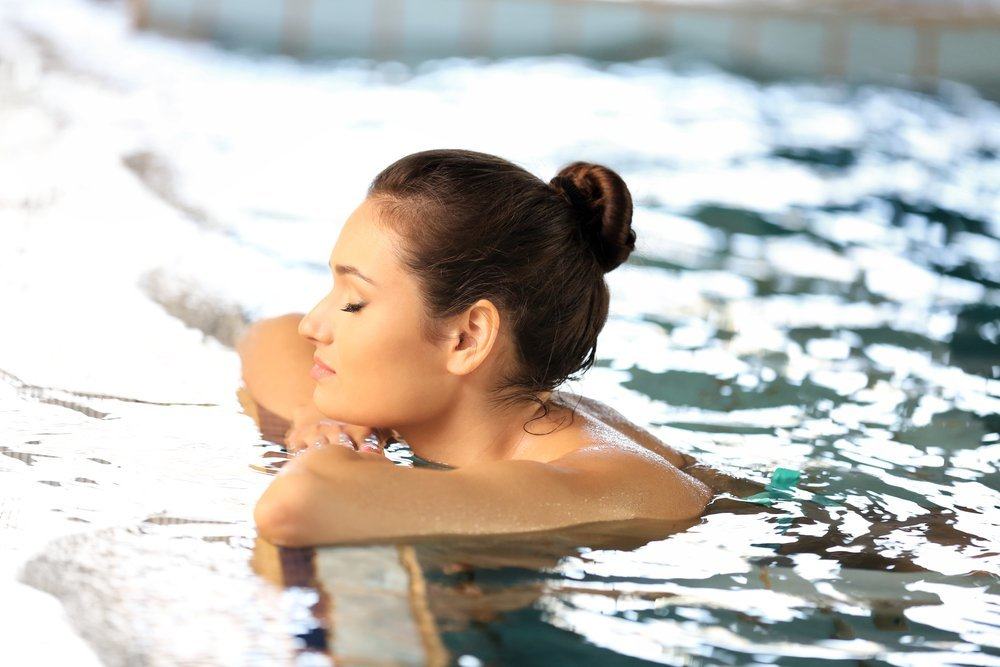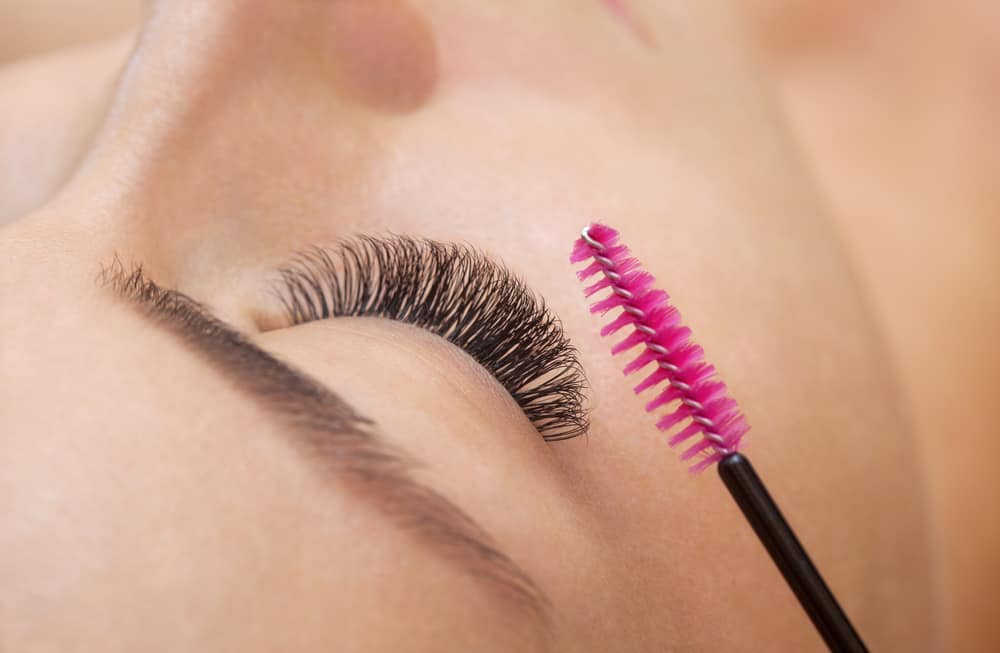Contents:
- Medical Video: 6 Tips To Protect Skin & Hair From Chlorine In Swimming Pool | Skin Hair Care Tips | Foxy Makeup
- What is in the pool water?
- The danger of chlorine for hair and skin
- Protect skin while swimming
- Use a waterproof sunblock or moisturizer
- Rinse before swimming
- Drink lots of water
- Take a shower immediately after it's finished
- Use moisturizer after bathing
- Protect hair while swimming
- Protect with conditioner or olive oil
- Wear a swimming cap
- Instantly wash it thoroughly
Medical Video: 6 Tips To Protect Skin & Hair From Chlorine In Swimming Pool | Skin Hair Care Tips | Foxy Makeup
Swimming is a fun and refreshing activity to train your physique. In addition, swimming is good for body, mental and heart health. You can do this water sport every day to get a fresher body and mind. However, swimming every day has its own impact. Water in swimming pools usually contains chemicals that have the potential to damage your hair and skin, especially if you swim under sun exposure. You can do the following steps to protect your hair and skin.
What is in the pool water?
To kill various bacteria, germs, and moss that live in pool water, chemicals such as disinfectants and sanitizer will be mixed with water. Soda ash (sodium carbonate) is also often mixed to increase the pH of water. The most commonly used as a disinfectant and sanitizer is chlorine. The process of releasing chlorine in water is called chlorination. There are various types of chlorine which are usually used, for example liquid chlorine, solid chlorine (available in tablets that will dissolve in water), and chlorine gas for very large swimming pools.
The danger of chlorine for hair and skin
Although chlorine is very useful for killing bacteria, it does not mean that chlorine will not have any effect on human hair and skin which is directly in contact with pond water. If you swim frequently, of course the effects of chlorine on your hair and skin will be felt for a long time. Chlorine can cause dry hair and skin because of the oxidation reaction produced. Even for some people who are sensitive to strong chemicals, chlorine in pool water will cause itching and reddish skin. So, it is important for you who often swim to provide extra protection on your hair and skin so that you can still maintain healthy hair and skin while enjoying the fresh swimming pool.
Protect skin while swimming
Skin that is too often exposed to chlorine will lose its natural moisture. To avoid dry or rough skin due to frequent swimming, apply the steps below before and after swimming.
Use a waterproof sunblock or moisturizer
Before you get into the water, cover your skin first with sunblock water resistant so that sunlight and chlorine will not be directly absorbed by your skin. choose sunblock with high SPF numbers if you want to spend a long time swimming.
Rinse before swimming
The habit of rinsing yourself before entering into swimming pools turns out to be very useful for your skin. After coating yourself with sunblock, wait a few minutes hinga sunblock well absorbed by the skin and rinse yourself. Even the skin will adjust to the temperature and nature of the water before you enter into pond water containing various chemicals.
Drink lots of water
To maintain the skin's natural moisture, drinking lots of water will help you from the body. Don't forget to drink lots of water before and after you swim.
Take a shower immediately after it's finished
After you finish swimming, immediately take a shower and clean your body thoroughly. If possible, wash with warm water because it will speed up the release process of chemicals that attach to your body. To avoid irritation, dry the body by gently tapping the soft towel, not rubbing it on the skin.
Use moisturizer after bathing
Choose high moisturizing lotions to apply after bathing. If your skin feels itchy or looks reddish, don't scratch it. Just apply moisturizing lotion or olive oil to the part that is irritated and leave for a few moments.
Protect hair while swimming
Hair that is too often in contact with chemicals in a swimming pool or exposed to sunlight will feel dry, itchy, or easily broken and branched. So you need to pay attention to the protection steps below.
Protect with conditioner or olive oil
Rinse your hair before entering the pool and coat your hair with conditioner or olive oil. Apply a thin layer and flatten until all the ends of your hair are protected. Thus, chlorine or other harmful substances will be held back by conditioner or olive oil, not directly attacking your hair.
Wear a swimming cap
To provide extra protection for your hair and scalp, you can also wear a swimming cap. Swimming caps do not guarantee clean hair from chlorine at all, but at least you are protected from sunburn and you can slow down the harmful effects of chlorine on your hair. In addition, you can swim more freely and comfortably because your hair is neatly wrapped in a swimming cap.
Instantly wash it thoroughly
After swimming, wash your hair clean and apply conditioner to moisturize. If possible, use warm water to be able to more quickly clean the chemicals that attach to the hair and scalp. Dry it with a towel and avoid using a hair dryer or vise first so that your scalp can produce oils that will soften hair naturally.
READ ALSO:
- 12 Conditions That Cause Hair Loss
- What to do before and after swimming
- What is SPF, and what is the difference between Sunscreen and Sunblock?












